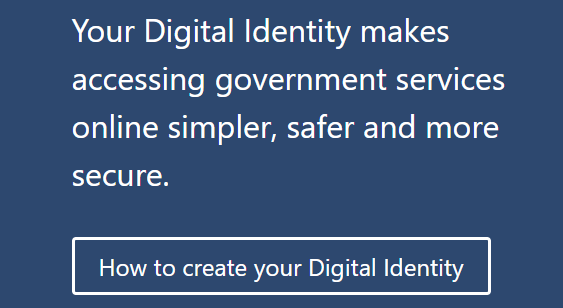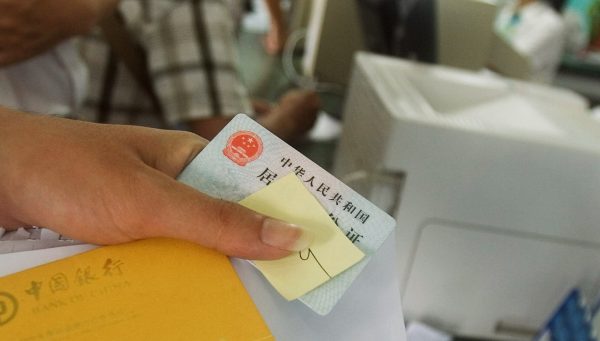
Facial recognition technology is operated in Sydney, Australia in this file photo. (Ian Waldie/Getty Images)
Australia’s New Digital Identity: One Step Closer to China, Experts Warn
By Daniel Khmelev
October 17, 2022 Updated: October 18, 2022
Critics of the ongoing plans to expand Australia’s digital identity system are warning it could eventually be used to restrict the liberties of its citizens—in a way akin to that already employed by the Chinese Communist Party (CCP).
Currently, using a digital ID—known as myGovID—in Australia is optional and has been rolled out for federal services such as for taxes, welfare, health, education, and social services. However, for people looking to start a new business, a digital ID is compulsory.
Signing up involves providing several identification documents, such as a passport, driver’s licence, etc.
But Prof. John Hartnett—a retired physics research scientist who has worked on cryocooled sapphire oscillators (or “sapphire clocks”) used by the European Space Agency and the Australian military—is not convinced the system will be immune to misuse.
Hartnett cautioned that granting government control over a person’s access to services in one convenient form of identification could, in the worst case, make overreach in power much more likely in the future.
“The digital identity will rapidly lead to a digital dictatorship inside of a digital prison,” Hartnett said at a Building the Digital Prison conference hosted by the Civilisationists and Western Australian Legal Theory Association in Perth on Oct. 12.
Hartnett argued that binding access to various services to a digital ID could mean the government technically had the authority over which services an individual may or may not use
“[People could be] controlled though this sort of tech coupled with the score each person is given. If you don’t behave, your score will be set to such a state that you cannot unlock any services, like buying food or travel,” he said.
“Just take a look at China now, with their social credit system.”
Australian Government Has Lauded Digital Identification
The Australian government has lauded digital identification as a mechanism that will replace multiple logins across different services in a secure way, which “makes getting things done with government faster and easier.”
By 2024, more than $600 million (US$380 million) will have been expended on developing the system.
The aim is for it to be adopted by more of the public sector and even parts of the private sector—namely, banking and utilities. There are also plans to include facial data as part of the ID, allowing users to be verified solely from a scan of their face.

But while the Australian government states on its website, “creating and using a Digital Identity is not compulsory and is your choice to make,” Hartnett is not convinced.
He does not believe it will remain optional forever.
“At the moment, it is voluntary to sign up for it. But that is the usual means by which all compulsory mechanisms are introduced,” he said.
The Epoch Times reached out to the Digital Transformation Agency—the department responsible for myGovID—and inquired whether the government had plans for the system to always stay voluntary, but did not receive a reply in time for publication.
China’s National ID and Social Credit System
Some of Hartnett’s concerns have already been realised in China.
IT specialist and former Chinese resident, Richard Lue, explained that every citizen in China is issued a national ID card, which requires one’s basic information, photo, and fingerprint. Recently, the Chinese government has even controversially encouraged supplying DNA via blood samples.
“[Without the ID card], you can’t work, you can’t have a driver’s licence, you can’t do anything,” Lue said at the conference.

Australia previously proposed a national identification card under the Hawke Labor government in 1985, which was known as the “Australia Card.” The legislation, however, was scrapped in 1987 after repeated opposition in parliament.
Today, in China, a national ID card is even required when booking a taxi, taking a domestic flight, registering a phone number, opening a bank account, creating a social media account, or shopping online.
However, a Chinese resident’s ability to use these services may be impacted based on their social credit score.
Lue elaborated that any number of actions could result in a deduction in social credit, such as receiving a traffic infringement or saying something negative about the Chinese Communist Party.
“Thus, the social credit system means you may not be able to get a loan from the bank, or that you may not be able to get a job in public service areas.”
Concerns of Excess Government Involvement
Augusto Zimmermann, a former law reform commissioner in Western Australia and head of law at Sheridan Institute of Higher Education, expressed concern over the new digital ID card and the Australian government’s growing involvement in the lives of its citizens.
Zimmermann pointed to myGov—Australia’s online portal for tax, health, and other services—which already manages and stores swathes of personal data, and which is mandatory for certain activities, such as lodging tax returns online.
“Privacy is already being invaded by the government,” Zimmermann told The Epoch Times on Oct. 17.
“I was horrified to see that even my medical reports and everything I have concerning my private life—that should never never be of knowledge to the government—is already collected by the authorities here.”

With regards to digital identification, Zimmermann believes “the government should be out of this business altogether.”
“I’d feel less worried… [if the government wasn’t] inventing a means by which we may be unable to make a financial transaction without having it be electronically monitored, or which could make it impossible to travel overseas or another state without being identified,” he said.
A select number of organisations and governments worldwide have already expressed and encouraged support for digital identification.
This includes the World Economic Forum and its Known Traveller Digital Identity (KTDI) initiative, for which Canada and the Netherlands have volunteered to join as early adopters.
Read More
WEF’s Digital ID Pilot Project in Travel Has Stalled, Says Transport Canada
Follow
Daniel Khmelev is an Australian reporter based in Perth covering energy, tech, and politics.
